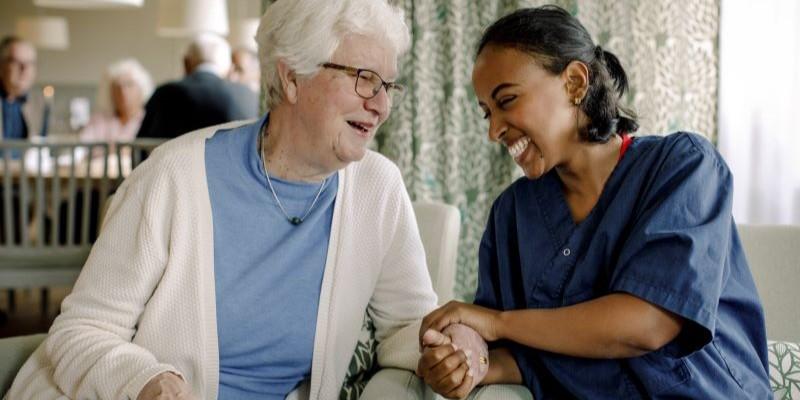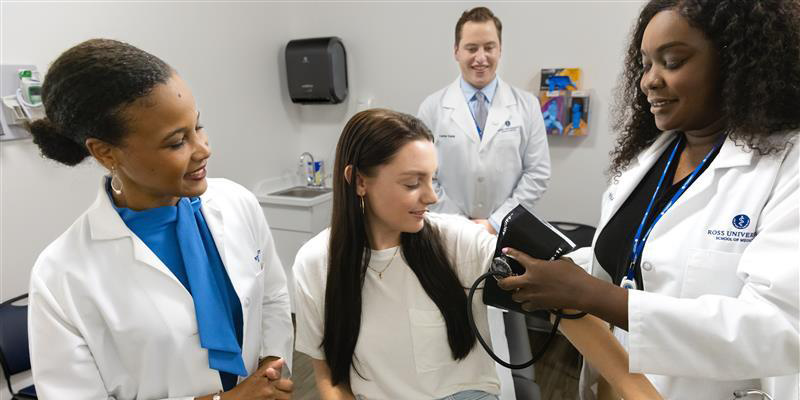Healthcare needs empathy in every caregiver. Learn how one alumna from Adtalem is helping nursing students make patients partners in their care.
“Nursing is both a science and an art.”
That’s how Dr. Jessica Holden opened her doctoral study, “A Toolkit to Support Nurse-Patient Communication through Nurse-Expressed Empathy,” for her Doctor of Nursing Practice (DNP) degree from Walden University.
On the side of nursing as an art form is empathy, a topic Dr. Holden has dedicated much of her career to advocating for on behalf of patients. Dr. Holden’s published study continues:
Dr. Holden completed her DNP in 2017 and before that a Master of Science in Nursing, also at Walden, in 2010.
Today, she furthers those same empathetic principles in nursing as both a care provider and educator. She is a harm reduction nurse for Tapestry Health and associate professor and executive director of nursing and allied health for Westfield State University. She has also been a visiting nursing instructor at Adtalem’s Chamberlain University throughout the seven years since she finished her DNP from Walden.
Increasing Empathy at the Student Level
“I work hard to create a thread of empathy as a theme throughout the curriculum and explore it as a concept utilizing experiential learning,” she says. “I practice empathy with my students in trying to understand their perspective and how best to match my approach as an instructor.”
The goal of experiential learning is to put students in the physical or emotional state of another to better prepare how they could interact when faced with a similar scenario as a caregiver.
“I often ask my students ‘why do you think the patient or family member responded that way? What could have motivated that behavior?' as a way to get them to think about another person's perspective,” says Dr. Holden. “Anecdotally, students say they are changed by the experiences.”
Patients are True Partners in Care
Here, Dr. Holden shares her thoughts on empathy from the patient’s perspective and why it’s important for nursing students to begin their foundation of empathetic care in the classroom:
Patients should feel as if they are true partners in their care and that they are the center of everything that is going on around them.
Patients should have caregivers who stop and engage with them before asking any sort of assessment questions or using physical touch, for instance, to take vital signs. They should feel as if they have been able to establish a connection with somebody before anything else happens in the visit or the experience. Patients deserve that level of care and should feel like their perspective is part of decisions made about their care.
Empathy is important in the classroom because recent graduates are often so task oriented and process-focused, it is sometimes difficult to focus on the patient, engage, and try to understand what the patient is experiencing because, as new nurses, they are continuing to learn much like in any new career. They are learning procedures they might not have been able to experience during their preparation or academic programming.
By emphasizing empathy in the classroom, the foundation of empathetic care is already started before the transition from student to practicing nurse.
For more information, email the Adtalem Global Communications Team: adtalemmedia@adtalem.com.




